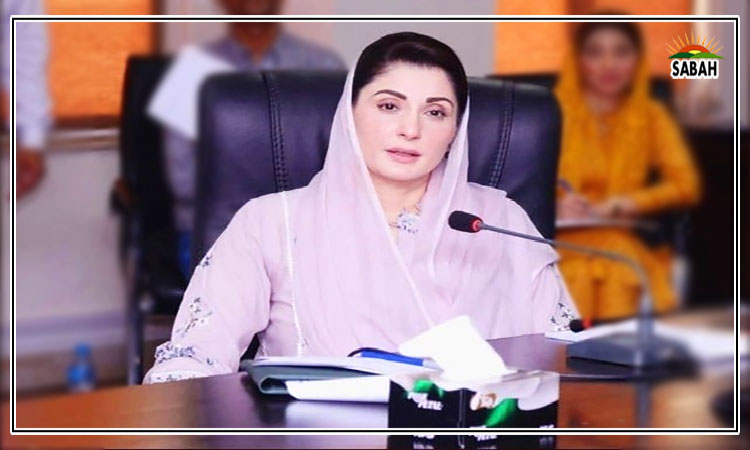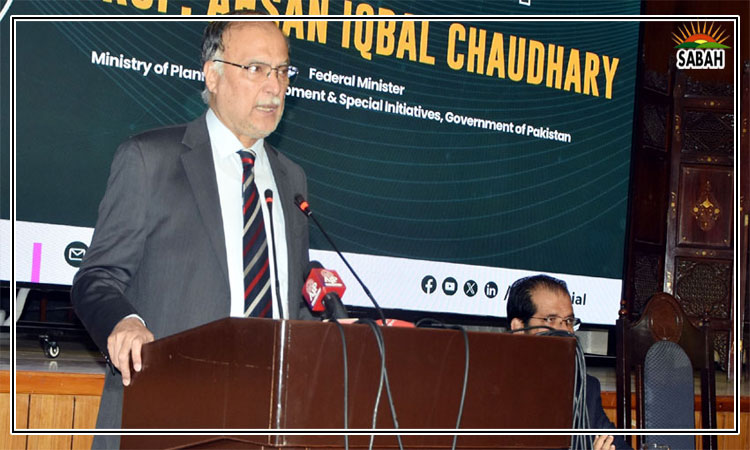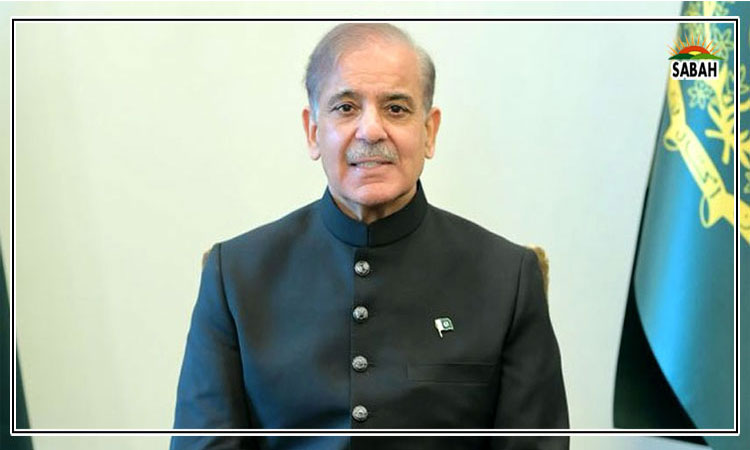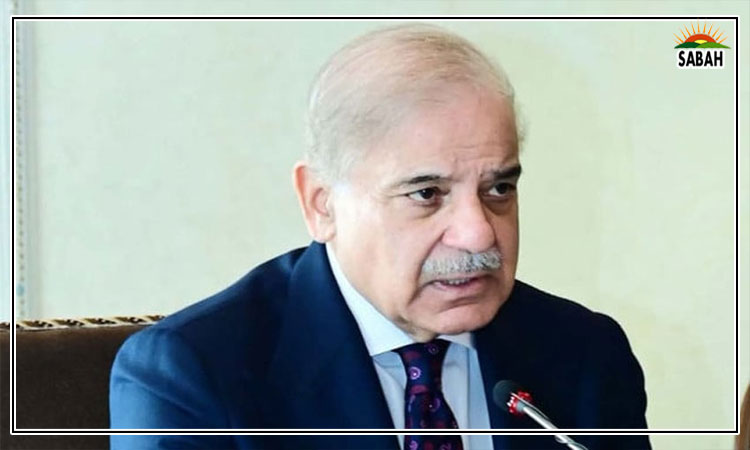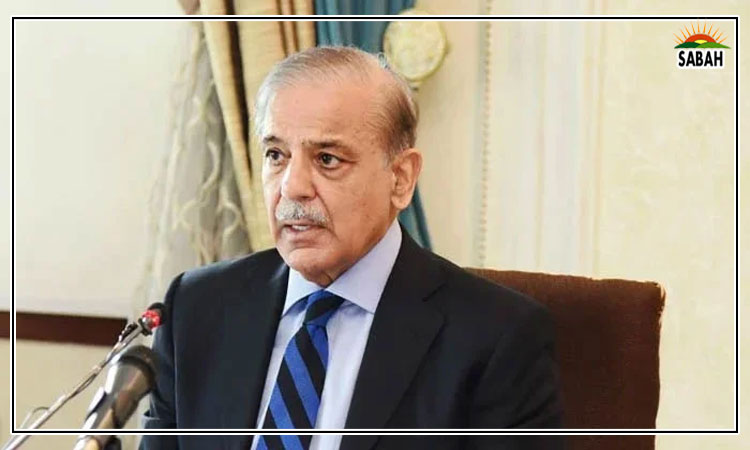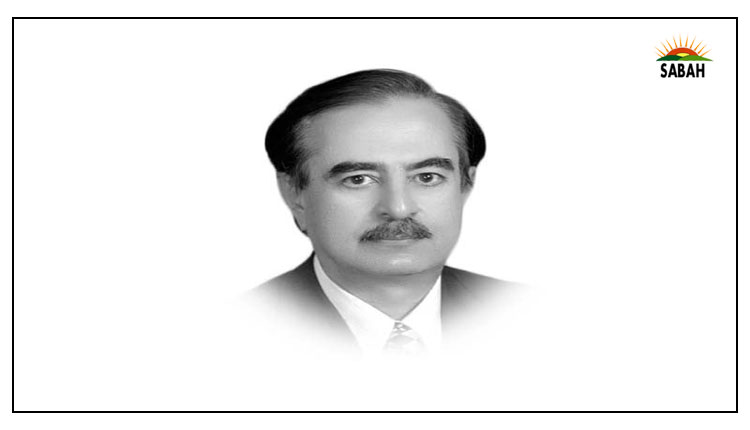Twenty one billions… Sahibzada Riaz Noor
The State Bank of Pakistan has been directed by the highest court of the land to place, from out of the Federal Consolidated Fund, an amount of Rs21 billion required to conduct elections to the Punjab and KP assemblies, directly at the disposal of the Election Commission of Pakistan.
The preamble of our constitution spells out that sovereignty rests with Allah and the authority exercised by the people is a sacred trust delegated by Him to them and that the State shall exercise its power and authority through the chosen representatives of the people.
The State Bank acts as the bank to the state and during the previous government, under IMF requirements, was granted nearly absolute autonomy.
Under Article 78 of the Constitution all the revenues and other receipts like loans or all monies in repayment of loans received by the Federal government, form part of the Federal Consolidated Fund.
These Funds are spent on heads of expenditure laid down under Article 81(a) to (e), mainly relating to the remunerations of such offices as the President, Supreme Court judges, Speaker and Deputy Speaker, CEC and Auditor General, on repayment of Federal debts, administrative expenses of the Supreme Court, the ECP, the Secretariat of the Senate/National Assembly and the Auditor General office.
Just as no tax is leviable so is neither any expenditure chargeable on these revenues without the express authority of the National Assembly. The custody and expenditures from this Fund, since these include moneys generated by taxes that are leviable on themselves only by the people through their chosen representatives, cannot be made without an Act of Parliament. Besides the above cited charged expenditures, there are others which are also met from the Federal Consolidated Fund, the difference being that no changes by vote are permissible in the amounts required to defray the expenses on account of charged heads.
Collections and revenues made to settle expenditures other than those chargeable to the heads debitable to the Federal Consolidated Fund are referred to as those pertaining to Public Account of the Federation.
One of the cardinal principles of self-rule for which people have staged revolutions like the French or the American War of Independence is that which posits: no taxation without representation. In other words no authority that is not based upon or derived from the express will of the elected representatives of the people has either the moral or legal justification to levy or claim collection of taxes from a community or society, to meet expenses to defray the charges necessary to fulfil the functions of the state, security or welfare.
At the commencement of each financial year, as stipulated under Article 80 of the Constitution, the Federal government lays before the National Assembly the Annual Budget Statement in respect of each financial year showing the estimated revenues and expenditures of the Federal government for that year. Each demand, other than those required to meet expenditures on account of the Federal Consolidated Fund, is put to vote and after its passage by a majority, the Prime Minister authenticates, under Article 83, a Schedule of New Expenditures which authorises the State Bank and the Auditor General to issue funds upon authorisation of the Ministries concerned.
There may arise, during the course of the financial year, situations where expenditures are required to be met or incurred, for which no provision or insufficient amount was kept in the Annual Budget Statement. In order to meet such an eventuality the Federal government possesses the power to authorise expenditure from the Federal Consolidated Fund, whether the expenditure is a charged expenditure or otherwise, and lay before the National Assembly a Supplementary Budget Statement, or as the case may be, an Excess Budget Statement.
It is putatively this Constitutional provision (Article 84) which the Supreme Court has invoked to enjoin the State Bank to directly issue to the ECP the funds required to hold the elections. However, the judicature has ruled that an ex post facto approval would be sought from the National Assembly in respect of this supplementary amount.
Has the Gordian knot been untied? The National Assembly refuses to concede while the Supreme Court insists that the required funds be provided. Several aspects beg the question. The State Bank acts only as a banker of final resort to the state. Can a bank be ordered to make payments without the express assent or approval of the holder of an account, especially where sacrosanct public tax moneys are concerned? Does it fall within the ambit of Article 190 of the Constitution which lays down that All executive and judicial bodies shall act in aid of the Supreme Court? Is the State Bank, stricto sensu, a regulatory and supervisory authority or also an executive one?
Secondly, Article 84 of the Constitution spelling out the procedure governing supplementary and excess grants, under which the directions to State Bank have been issued, lays down that the provisions of Articles 80 to 83 shall apply to those statements (ie Supplementary and Excess Grants charged to the Federal Consolidated Fund) as they apply to the Annual Budget Statement. Unlike in the case of heads of expenditure charged to the Federal Consolidated Fund which are not subject to vote, the National Assembly possesses the powers, in respect of the demands for grants included in the Annual Budget Statement, under Article 82 (2) to assent to, or to refuse to assent to, any demand
Has an irrefutable solution been found? What is the dividing line between the extent of applicability of the principle of debtor judgment or seizure of assets in meeting a claim upon budgetary moneys, which accrue only from the sovereign right of a people to tax and incur expenditures therefrom? Is the principle of defraying costs involved in discharge of a court order applicable to state moneys which are the sole purview and remit of a sovereign parliament? Wherefrom does a depository bank obtain the legitimacy to release funds that possess the status of public monies under the sole jurisdiction of the state and people of Pakistan? A logical corollary that can be drawn is whether a court can also levy taxes or raise loans to meet a certain expenditure? Are we strictly in legal domain or crossing over into contentious political waters?
Courtesy The Express Tribune


